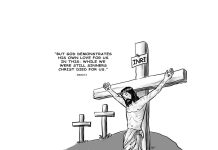
WHEN I was working as a Director of the Philippine Charity Sweepstakes Office (PCSO), I realized that there is not much of a difference between an indigent person and a needy person, and as a matter of fact, the two could be one and the same.
In theory, PCSO should only provide financial assistance to indigent persons, but how could we say no to needy persons who do not appear to be indigents?
Applicants who ask for financial assistance from PCSO and who claim to be indigents are required to secure a Certificate of Indigency from their barangay chairman. Based on what I know however, most chairman would issue such certificates to almost anyone, knowing perhaps that most of their residents are needy, one way or the other.
I happen to know a lot of people who are technically not indigents because they are earning some incomes and may even happen to have some savings. The problem is, they lose their means of income when they get sick, and they often have no choice but to spend their savings for their treatments. That is how they become practically needy, even if they would still appear to be affluent.
Fortunately, the social workers of PCSO know their job very well, and somehow, they are able to sense that even if an applicant appears to be affluent, he or she might have become indigent already, because of the high costs of his or her treatments. As a matter of fact, they might have fallen below the poverty line already.
SOCIALIZATION OF BLOOD SUPPLIES
Perhaps as a spillover from my days as a PCSO Director, I still get emergency requests for blood supplies coming from the relatives of patients who need these. Thanks to my friends at the Philippine Blood Center (PBC), Philippine Red Cross (PRC) and the Dugong Alay Dugtong Buhay (DADB), I am still able to provide the blood supplies.
Although PBC and PRC are both very efficient and have never said no to my requests, many relatives of needy patients are asking me why they have to pay for the blood supplies. In their understanding, the blood is being “sold” to them.
I always try to explain to them that under the law, it is prohibited to “sell” blood, and that both PBC and PRC are very careful not to break the law.
What actually happens is that both PBC and PRC are charging for “processing fees”, which is really just one way for them to Recover their operating costs.
Perhaps one way to do away with these fees is to increase the budget of the PBC, being a government agency under the Department of Health (DOH).
The PRC is an autonomous nongovernment organization (NGO), but there is nothing that prohibits the government from donating to it.
DADB is also an NGO, and it could freely accept donations from the public and grants from the government. In the absence of additional budgets, perhaps both PBC and PRC could adopt policies that would allow them to waive the “processing” fees for indigent patients./PN







